目次
- 1 Trump’s “Missed Opportunity” Comment on Iran Signals New Phase in Middle East Crisis – Analyzing Military Intervention Risks and Global Economic Impact
- 1.1 Israel’s Military Success Transforms Strategic Environment
- 1.2 U.S. Military Intervention Preparations and “Maximum Pressure” Policy
- 1.3 Iran’s Response – “The Fight Begins” Warning and Nuclear Hedging Strategy
- 1.4 Historical Background – The 1979 Revolution That Changed U.S.-Iran Relations
- 1.5 Impact on the Global Economy – Oil Price Surge and Hormuz Strait Risk
- 1.6 International Community Response and National Positions
- 1.7 Impact on Japan and Diplomatic Role to Play
- 1.8 Worst-Case Scenario – Iran’s “Desperate” Possibility
- 1.9 “Rapid Deterioration to Quick Recovery” Scenario
- 1.10 Path to Diplomatic Solution – Trump the “Master Dealmaker” Possibility
- 1.11 Iran’s Internal Swing Between “Revolutionary Diplomacy” and “Realistic Diplomacy”
- 1.12 Shia-Sunni Rivalry Complicating Middle East Situation
- 1.13 Future Outlook – International Community’s Responsibility and Japan’s Role
Trump’s “Missed Opportunity” Comment on Iran Signals New Phase in Middle East Crisis – Analyzing Military Intervention Risks and Global Economic Impact
In June 2025, President Trump’s statement from the White House that “Iran has ruined the opportunity for a nuclear deal” has sent shockwaves through the international community. His words – “It’s too late to talk now” and “There’s a big difference between now and a week ago” – suggest a remarkable shift from the U.S. stance of opposing military action as long as diplomatic solutions remained possible.
When asked about attacking Iran’s nuclear facilities, President Trump maintained strategic ambiguity, stating, “I might do it, I might not do it. Nobody knows what I’m going to do.” While preserving plausible deniability, he did not completely rule out the possibility of military intervention. Behind this statement lies Israel’s military success, which is fundamentally changing the balance of power in the Middle East.
Israel’s Military Success Transforms Strategic Environment
Israel has secured air superiority over Iran in a short period, succeeding not only in attacking surface nuclear facilities but also in assassinating key figures including Revolutionary Guard commanders and nuclear scientists. This series of operations has revealed a significant decline in Iran’s operational combat capabilities.
According to the International Atomic Energy Agency (IAEA) Director General, Israeli attacks destroyed the above-ground uranium enrichment test facility at Natanz in Iran. However, no visible major damage has been confirmed at nuclear facilities in Fordow or Isfahan, and radiation levels at Natanz remain normal.
Israel has desired to attack Iran for over 20 years, and by significantly degrading Iran’s air defense capabilities and proxy forces (Hamas, Hezbollah, etc.) last year, it has been establishing military superiority over Iran. However, to attack enrichment facilities deep underground, particularly facilities like Fordow, Israel needs bunker-buster bombs and heavy transport aircraft it currently lacks, making American participation essential.
U.S. Military Intervention Preparations and “Maximum Pressure” Policy
The U.S. military has already deployed more than 30 additional aerial refueling aircraft to the Middle East region, which is reportedly in preparation for refueling support for Israeli fighter jets. While President Trump initially distanced himself from Israel, reports indicate he has come to support Israeli actions as their recent military successes have become apparent.
Multiple U.S. media outlets report that President Trump is seriously considering attacks on Iran’s nuclear facility at Fordow, with Israel also seeking U.S. participation in attacks. President Trump posted on social media that “our patience is reaching its limit” and demanded Iran’s unconditional surrender regarding nuclear development abandonment.
This U.S. demand for unconditional surrender and Iran’s nuclear crisis represents the ultimate form of the Trump administration’s “maximum pressure” policy. Since withdrawing from the nuclear deal in 2018, the U.S. has sought to corner Iran through “maximum level sanctions,” aiming to eliminate nuclear development capabilities, end involvement in Syria and Yemen, and contain missile development.
Iran’s Response – “The Fight Begins” Warning and Nuclear Hedging Strategy
Iran’s Supreme Leader Khamenei firmly rejected President Trump’s demand for unconditional surrender, warning that “the fight begins” and “we must take resolute action. We will not show mercy.” Iran is reportedly preparing missiles to attack American military bases in the Middle East.
Regarding Khamenei, President Trump stated he “knows exactly where he’s hiding” but added, “at least for now, I don’t intend to kill him.” This can be interpreted as reflecting the U.S.’s true intentions of maintaining military pressure while avoiding full-scale military conflict.
Meanwhile, President Trump revealed that the Iranian government had contacted the U.S. with an offer to meet at the White House to resolve issues, though Iran denied this claim. However, Iranian President Pezeshkian emphasized that while rejecting the possibility of direct negotiations with the U.S., the path for indirect negotiations remains open.
Iran’s Nuclear Development Status and Strategy
The International Atomic Energy Agency (IAEA) has declared that Iran is violating its obligations under the nuclear deal (JCPOA). The Iranian parliament has announced it is preparing legislation to withdraw from the Nuclear Non-Proliferation Treaty (NPT), raising international concerns.
However, Iran has reaffirmed its official position opposing nuclear weapons development and is reportedly considering maintaining a “nuclear hedging” state – the ability to weaponize quickly rather than actually possessing nuclear weapons – as a deterrent. This is part of a strategy to maintain a situation of “more than violation, less than withdrawal” without completely withdrawing from the nuclear deal.
Even when attacked by Israel, the damage Iran inflicted on Israel was relatively limited. This is because the United States supports Israel’s air defense systems. While Iran’s proxy forces Hamas and Hezbollah have been weakened, Yemen’s Houthis remain active and are said to favor unpredictable, high-risk actions.
Historical Background – The 1979 Revolution That Changed U.S.-Iran Relations
To understand U.S.-Iran relations, one must understand the decisive turning point of the 1979 Islamic Revolution. Before the revolution, the United States was Iran’s largest economic and military partner. In Iran, which was rapidly developing infrastructure and modernizing industry, 30,000 Americans resided, playing technical, educational, and advisory roles.
However, this overly rapid modernization brought anxiety and dissatisfaction to many Iranians, leading to the 1979 revolution. The Islamic Republic regime, almost immediately after the revolution, labeled the United States as the “Great Satan” and made confrontational “anti-Americanism” one of the three principles of its foreign policy.
Following the 1979 Iranian hostage crisis at the U.S. Embassy, the United States clarified its hostile policy toward Iran, initiating asset freezes and economic sanctions. Furthermore, “anti-Israelism” became a principle of Iran’s foreign policy on grounds of occupying Palestinian land, becoming a decisive axis of confrontation with the United States, which strongly supports Israel.
From Obama’s Nuclear Deal to Trump’s Withdrawal
While viewing Iran’s nuclear weapons development as the Middle East’s greatest threat, former President Obama treated Iran as a “normal state” and concluded the nuclear deal (JCPOA) in 2015. This agreement promised sanctions relief in exchange for Iran limiting capabilities leading to nuclear weapons development and accepting IAEA inspections. It was accepted by European countries, China, and Russia, with expectations for Iran’s return to the international community and economic benefits.
However, President Trump considered Iran’s very existence a destabilizing factor in the Middle East and treated Iran as a “hostile state.” He criticized the Obama administration’s nuclear deal as insufficient and unilaterally announced withdrawal in 2018. He resumed the “maximum pressure” policy to corner Iran through “maximum level sanctions,” aiming to eliminate nuclear development capabilities, end involvement in Syria and Yemen, and contain missile development.
Impact on the Global Economy – Oil Price Surge and Hormuz Strait Risk
Current U.S.-Iran tensions are affecting global financial markets from multiple perspectives. Uncertainty about the Middle East situation is likely to increase market volatility in the short term, with oil prices already surging, reflecting market participants’ anxiety about supply reductions.
Until it becomes clear how Iran and the U.S. will respond to Israeli attacks, oil prices are likely to incorporate a risk premium. However, if there are no major supply disruptions, oil prices may fall again.
Maximum Risk – Hormuz Strait Blockade Scenario
If Iran blocks the Strait of Hormuz and further restricts oil distribution, it could have devastating effects on the global economy. The Strait of Hormuz is the artery of global energy supply, with more than 20 million barrels of oil passing through daily.
Further oil price increases would deal an additional blow of inflation to the global economic system already strained by the Trump administration’s tariff wars. The IMF and World Bank have indicated that growth rates in Asian economies, including Japan, will slow in 2025, highlighting vulnerability to external shocks.
Impact Forecast on Various Assets
- Stock Markets: May crash sharply as increased uncertainty and deteriorating economic outlooks are priced in.
- Safe Haven Assets: Gold, Swiss francs, and high-grade bonds (especially those issued by countries with subdued inflation) are expected to perform well.
- Impact on Russia: Rising oil prices benefit Russia by providing President Vladimir Putin with billions of dollars in oil revenue, serving as military funds to continue the invasion of Ukraine.
International Community Response and National Positions
In the conflict between the United States, Iran, and Israel, the international community plays diverse roles including seeking diplomatic solutions, suppressing escalation, and ensuring their own security and economic interests.
United Nations (UN) Dysfunction
International law does not recognize preemptive strikes, and Israeli attacks on Iran are generally considered problematic under international law. The Japanese government has also stated that Israel’s use of military means is “extremely regrettable” and “strongly condemned.”
However, the UN Security Council has become “dysfunctional” due to repeated vetoes by permanent members, lacking concrete means to stop Israel. This raises concerns about the international community’s tacit acceptance of unilateral changes to the status quo through force.
G7’s Contradictions and Values Breakdown
The G7 leaders’ statement includes protection of civilians and prevention of escalation. However, recognizing Israel’s right to self-defense has been pointed out as “highly contradictory” given that Israel possesses nuclear weapons.
Trump’s attitude toward the G7 emphasizes “power” over liberal democratic values, and by advocating for Russia and China’s participation, the G7’s function as a framework sharing common values is said to be “broken.” The G7 has issued a joint statement not recognizing Iran’s nuclear possession and is valued as a channel for dialogue.
European Countries (E3: UK, France, Germany) and EU Position
The nuclear deal under the Obama administration was accepted by European countries as a way to return Iran to the international community as a “normal state” and bring economic benefits. In response to President Trump’s withdrawal from the nuclear deal, the UK, France, Germany, and EU expressed regret and indicated their policy to remain in the agreement.
Germany, due to its history of Jewish persecution by the Nazis, is particularly committed to Israel’s security and maintains a certain distance from Iran, which maintains an anti-Israel stance. EU High Representative for Foreign Affairs Borrell presented a draft for rebuilding the nuclear deal, and indirect consultations resumed.
Russia and China’s Pragmatic Cooperation
Both countries supported the Iran nuclear deal and expressed disappointment at U.S. withdrawal. In the Israel-Iran conflict, they demand a ceasefire and take a somewhat pro-Palestinian stance due to their confrontation with the United States.
They have deepened relations with Iran since the Islamic Revolution, particularly strengthening ties after Iran’s nuclear issue emerged. Both countries share the common goal of correcting the U.S.-led unipolar world order and have built pragmatic cooperative relationships. Russia provided Iran with S-300 air defense missile systems and strengthened military cooperation in the Syrian civil war.
However, while China verbally criticizes U.S. sanctions intensification, it has actually stopped transactions with Iran out of fear of sanctions. This is attributed to being preoccupied with responding to the U.S.-China trade war.
Gulf States’ Mediation Efforts
Oman had been serving as a mediator for U.S.-Iran nuclear negotiations, but the June talks were canceled. Iranian Foreign Minister Araghchi is reportedly in contact with Qatar, Saudi Arabia, and Oman to seek a ceasefire.
Saudi Arabia, which once fiercely opposed Iran, has moved to improve relations by reopening embassies, recognizing that regional stability is essential for realizing its “Vision 2030” economic reform initiative. Qatar and Egypt are also serving as mediators in ceasefire negotiations.
Impact on Japan and Diplomatic Role to Play
While there is reportedly almost no direct military impact on Japan, the economic impact could be very significant. Japan depends on the Middle East for most of its oil imports, making the stability of the Strait of Hormuz vitally important.
Specific Impact on Japan’s Economy
- Rising Raw Material and Fuel Prices: This means serious cost increases particularly for manufacturing (automobiles, chemicals, non-ferrous metals, etc.) and electric power/gas companies, potentially forcing profit margin declines or passing costs to product prices.
- Maritime Transport Disruption: Tensions in the Middle East cause maritime transport disruptions, affecting supply chains.
- Investment Appetite and Capital Investment: As long as Middle East uncertainty continues, it may affect investment appetite and corporate capital investment plans.
- Inflation Risk: Rising transport costs and energy price volatility increase Japan’s inflation risk and could affect monetary policy.
Japanese companies have been making cautious investments and transactions considering the risk of the Iran nuclear deal not continuing, so losses are expected to be smaller compared to other countries. However, going forward, more flexible and strategic responses will be required, including early risk information gathering, diversification of procurement sources and logistics routes, strengthening of BCP (Business Continuity Planning), and integrated approaches with ESG management.
Japan’s Unique Diplomatic Position
Japan strongly urges both Israel and Iran to exercise restraint and seek diplomatic solutions. Peace and stability in the Middle East region are extremely important for Japan, with protection of Japanese nationals and ensuring stability of sea lanes being urgent issues.
Japan is said to have “clean hands” particularly regarding Middle East issues, placing it in a different position from Germany, the UK, and the United States. Japan is in the rare position globally of being able to dialogue with both the United States and Iran, and it has been suggested that this should be utilized to provide a point of contact for dialogue between the two countries.
The Japanese government strongly urges both Israel and Iran to exercise restraint and seek diplomatic solutions, while maintaining its alliance with the United States and developing multilateral diplomacy utilizing traditional friendly relations with Iran. Japan should make the international community recognize that Middle East stability is in its national interest and prepare to lead concrete support measures at international conferences on Gaza and Syria reconstruction.
Worst-Case Scenario – Iran’s “Desperate” Possibility
If the United States enters the war and attacks Iran’s enrichment facilities deep underground with bunker-buster bombs, it could lead to the “worst-case scenario.” Iran would view this as an attempt at regime collapse and launch “desperate” counterattacks.
Iran is internationally isolated and helpless, and unless it makes a decision to wage war desperately to maintain its regime, it is likely to continue receiving one-sided attacks. However, if underground nuclear facilities are attacked, it would be viewed as a regime collapse issue, and Iran would be expected to counterattack using all military capabilities.
Such counterattacks could include:
- Terrorist attacks throughout the Middle East
- Blockade of the Strait of Hormuz
- Attacks on Gulf states’ infrastructure
- Intensification of cyber attacks
Furthermore, if Iran’s nuclear possession becomes reality, a “nuclear domino effect” could occur with Saudi Arabia, Egypt, Turkey, and others successively pursuing nuclear weapons. Such unilateral changes to the status quo through force, beginning with Russia’s invasion of Ukraine and conflicts in Gaza, with G7 countries tacitly accepting or taking them for granted, has been pointed out as highly dangerous.
“Rapid Deterioration to Quick Recovery” Scenario
If the U.S. becomes fully involved in the conflict and jointly attacks Iran’s nuclear and military facilities with Israel in a “Scenario 3: Rapid deterioration to quick recovery,” energy supplies could be temporarily disrupted and some energy infrastructure in the Persian Gulf region could be damaged.
In this case, risk assets are expected to sell off more heavily than immediately after the attack. However, if Iran’s military capabilities decline rapidly, attention would turn to recovery of energy supplies from the Middle East region, and risk assets could quickly regain confidence.
Path to Diplomatic Solution – Trump the “Master Dealmaker” Possibility
As dialogue channels disappearing amid military conflict leads to “really serious consequences,” it is emphasized that strengthening diplomatic flows is important. Iran wants to avoid military confrontation and being forced into nuclear weapons development, and desires sanctions relief.
President Trump has repeatedly emphasized “I don’t want war” and “end wars,” positioning himself as a “peace candidate.” He prides himself as a “master dealmaker,” and the possibility of aiming for a Nobel Peace Prize through negotiations with Iran has been suggested.
The future development of Trump diplomacy in the Iran-Israel conflict will be a crucial factor determining the fate of the Middle East region. The Trump administration’s “maximum pressure” policy is said to aim at bringing Iran to the renegotiation table through “maximum pressure.”
In the past, President Rouhani showed willingness to negotiate if the United States intended to return to the nuclear deal. Current President Pezeshkian also maintains the possibility of indirect negotiations while refusing direct negotiations, showing expectations for sanctions relief.
Iran’s Internal Swing Between “Revolutionary Diplomacy” and “Realistic Diplomacy”
Since the revolution, Iran has swung between “revolutionary diplomacy” and “realistic diplomacy.” Realist administrations like President Rafsanjani (1989-1997), President Khatami (1997-2005), and President Rouhani (2013-2021) aimed for economic reform through improved relations with the West, but their attempts often failed due to obstruction by conservative hardliners and the “curse” of revolutionary ideology.
Economic hardship from sanctions has increased Iranian citizens’ dissatisfaction, but analysis suggests that anger is directed more at the United States, particularly President Trump, than at the leadership. Also, having seen the chaos in countries that underwent regime change during the “Arab Spring,” Iranian citizens show a cautious attitude toward regime overthrow.
After the U.S. withdrawal from the nuclear deal, Iran, as a countermeasure, gradually lifted nuclear development restrictions stipulated in the nuclear deal and raised uranium enrichment beyond the limit. However, complete withdrawal from the nuclear deal would lead to the “worst-case scenario” of U.S. military action and international isolation, so Iran adopted a strategy of maintaining a state of “more than violation, less than withdrawal.”
Shia-Sunni Rivalry Complicating Middle East Situation
In the Middle East region, there is fierce rivalry between Shia-led Iran and Sunni leader Saudi Arabia, adding to the complexity of regional circumstances. Since the United States is allied with Saudi Arabia, this regional rivalry also affects U.S.-Iran relations.
Additionally, the idea of “exporting revolution” – that Muslims in surrounding regions should also be liberated – forms the foundation of Iran’s foreign policy, creating tensions with neighboring countries.
Future Outlook – International Community’s Responsibility and Japan’s Role
While the United States demands Iran’s “unconditional surrender,” President Trump himself states “I don’t want war,” apparently leaving open the possibility of diplomatic resolution. Iran also emphasizes that the path for indirect negotiations remains open while refusing direct negotiations, desiring sanctions relief.
If early ceasefire agreement is reached through U.S. mediation, market impact would be temporary. However, this requires the entire international community to build capacity to respond to situations while considering all risks and to make maximum diplomatic efforts – difficult steering is required.
Japan is expected to utilize its rare position of being able to dialogue with both the United States and Iran to provide a point of contact for dialogue between the two countries. The Middle East crisis harbors extremely dangerous situations, and many experts appeal that strengthening diplomatic flows is extremely important.
The international community now stands at an important crossroads. Avoiding military escalation and seeking diplomatic solutions should benefit all concerned countries. In particular, G7 countries should strongly promote dialogue-based solutions without tacitly accepting changes to the status quo through force. Middle East stability is directly linked to global economic stability through energy security. To avoid the “worst-case scenario,” efforts utilizing all diplomatic channels are required.
Related Articles
- Iran-Israel Conflict and the Future of Trump Diplomacy – Deep Analysis of the Middle East Crisis
- U.S. Demands Iran’s Unconditional Surrender – Impact of Nuclear Crisis on Global Economy
References
- National Institute for Defense Studies Commentary
- Japan Institute of International Affairs Research Report
- Genron NPO Activity Report
- Sasakawa Peace Foundation SPF Monitor
- Canon Institute for Global Studies
- nippon.com In-depth Analysis
- JETRO Business Brief
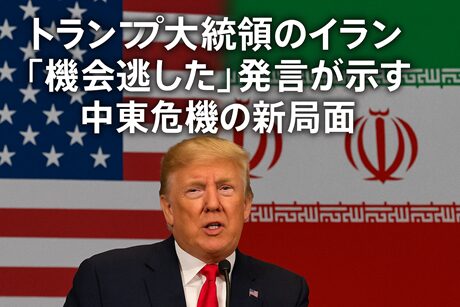


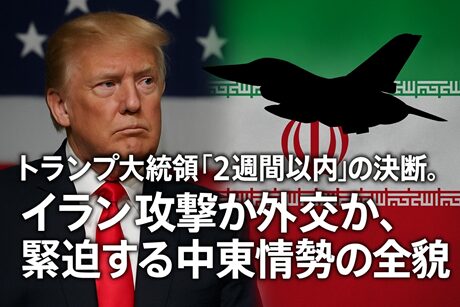
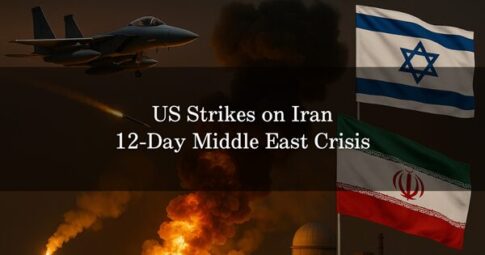
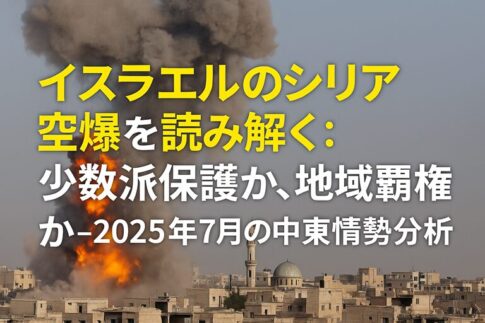
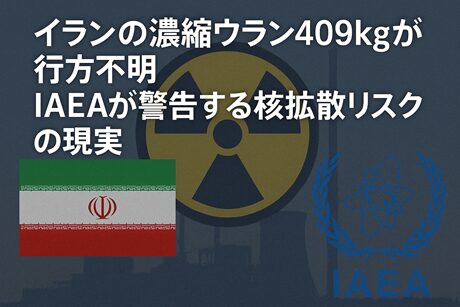
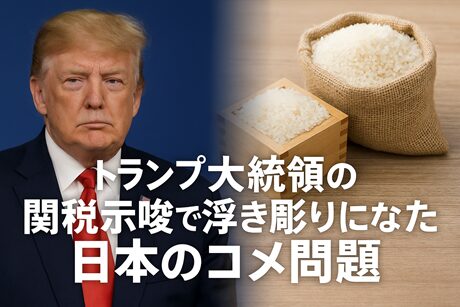
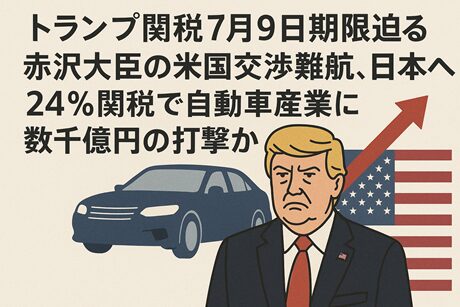

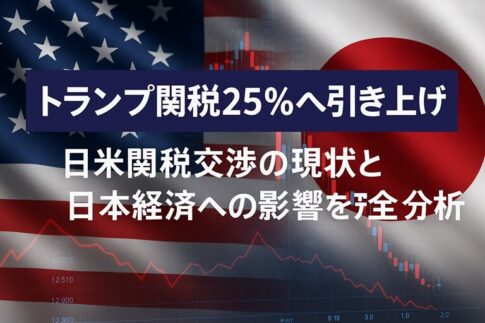

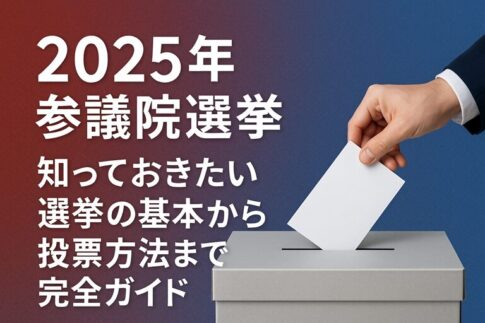




Leave a Reply